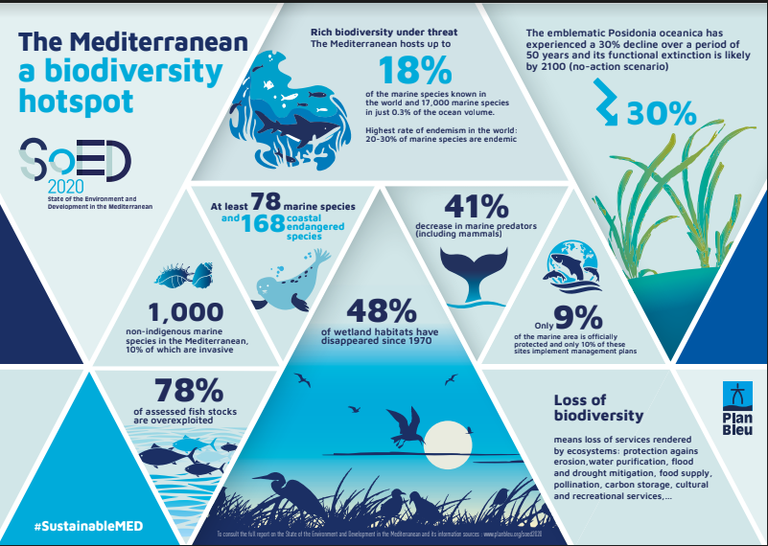Med News 03/2020
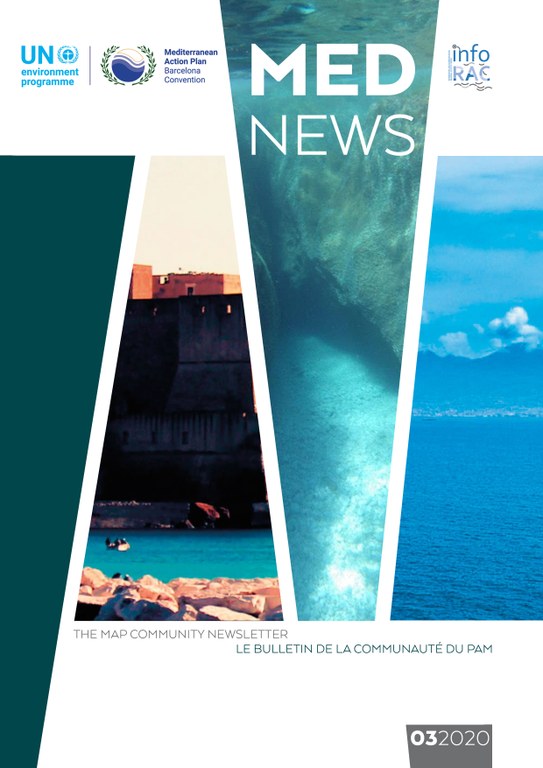
EDITORIAL l UNEP/MAP Coordinator Gaetano Leone
Moment of truth
A disruptive pandemic has revealed the centrality of the UNEP/MAP-Barcelona Convention system to a resilient and sustainable future in the Mediterranean
When it saw the light of day more than four decades ago, the Mediterranean Action Plan (MAP) marked a watershed moment. Under the auspices of UNEP, an unprecedented coalition of riparian countries started building what would become the most comprehensive legal framework to have ever been set up in a regional sea context.
We have gone a long way since and we are still pressing for more. The Barcelona Convention and its Protocols have gradually filled what had been an abyssal regional regulatory void in the Mediterranean. This endeavor continues thanks to the commitment of the riparian countries and the European Union.
Several thematic strategies and regional action plans under the Barcelona Convention are being updated and new projects (demonstrative field interventions to shore up Contracting Parties’ efforts) launched.
The recently inaugurated MedProgramme funded by GEF and featuring contributions from two regional development banks will step up efforts towards a cleaner Mediterranean.
The next Medium-Term Strategy (2022-2027) of UNEP/MAP will concentrate our expertise and resources on accelerating the fulfillment of our vision: healthy and productive marine and coastal ecosystems in the context of sustainable development, acknowledging the need to build back greener as the region recovers from COVID-19.
“We urgently need to step up ambition and action on the three planetary crises of climate change, nature loss and pollution to head off further pandemics and other, potentially far graver, shocks, the UNEP Executive Director Inger Andersen recently said.
The Mediterranean is a region where the symptoms of the triple planetary crisis are taking acute forms. The science–as encapsulated in the findings of the recently released State of the Environment and Development in the Mediterranean (SoED), and the First Assessment Report (MAR 1) of the network of Mediterranean Experts on Climate and environmental Change (MedECC)—has spoken: the Mediterranean is facing the prospect of irreversible damage if urgent action is not taken to halt current trajectories.
There has been a lot of talk about recovering greener. SoED puts evidence at the fingertips of decision-makers, notably on how business-as-usual has affected natural systems and societies in the Mediterranean, and thus can help them walk the talk. MAR1 illustrates the need for smart climate action that makes our region more resilient to future shocks.
Despite the doom and gloom of this moment, we stand a chance to see a new policy doctrine that protects ecosystems while delivering on the promise that the 2030 Agenda constitutes. There is no need for miracles or magic wands. A bold transformation is needed to reengineer our relationship with the Mediterranean Sea and Coast.
As colossal sums flow towards recovery, green paths must be prioritized in all sectors, including renewable energy, integrated water resource management, sustainable agriculture, fisheries and aquaculture, alternative tourism, and low-emission shipping, to name but a few.
Mediterranean countries could have chosen those green paths years ago. But perhaps the pandemic is the jolt that will nudge the region into action. A new push for compliance with existing obligations under the Convention and its seven Protocols, including regional plans and regulatory measures, will set the scene for and catalyze sustainability-driven national policies.
Since the early days of the pandemic, we have devised a strategic response in support of action by the Contracting Parties, and we identified practical ways in which the UNEP/MAP-Barcelona Convention system can support a green renaissance.
Let me quote Ms. Andersen again: “2021 could be a make or break year”. This is the moment of truth. All the ingredients of success are in place: knowledge, technology, awareness, a generally favorable public opinion and a vibrant civil society (that is more connected than ever) as well as a pro-sustainability legal and implementation framework that the UNEP/MAP-Barcelona Convention system has given to the Mediterranean through a multilateral process spanning more than four decades.
By embarking on national policies that invest in sustainability and resilience, decision-makers can bring about a green renaissance in the entire region. But for that to happen, we will need all hands on deck. Turning words into deeds will be crucial, and policy forums, such as those offered by our partners in the Union for the Mediterranean and the Parliamentary Assembly of the Mediterranean, could facilitate a a greater integration of the legal instruments and implementation tools offered by the UNEP/MAP-Barcelona Convention system.
Avoiding unnecessary institutional overlaps and fostering cooperation in our region must prevail because in Mare Nostrum we are all in this together.
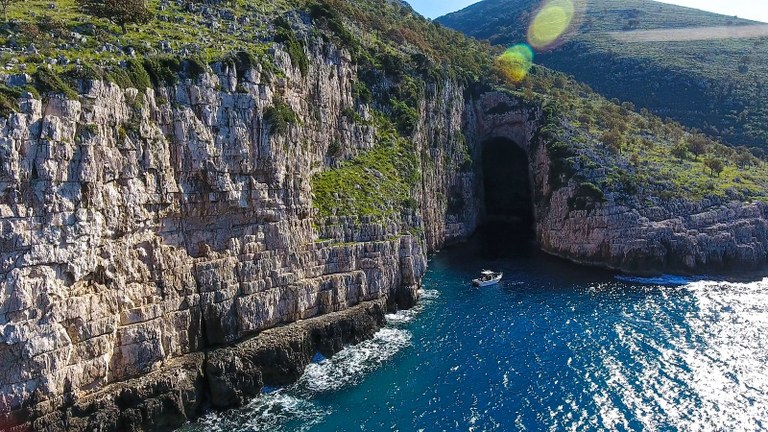
MEDITERRANEAN COAST DAY 2020
This year many regional institutions and partners as well as members of the public joined UNEP/MAP in marking the 2020 edition of Coast Day.
Although the main ceremony initially planned in Malta could not take place on 25 September, a digital ...
This year many regional institutions and partners as well as members of the public joined UNEP/MAP in marking the 2020 edition of Coast Day.
Although the main ceremony initially planned in Malta could not take place on 25 September, a digital campaign highlighted the importance of Integrated Coastal Zone Management (ICZM) and, more broadly, of sustainable consumption and production in the region.
The digital campaign
The campaign’s page offered visitors resources and communication assets ranging from a lexicon to a collection of facts and figures on the situation of the Mediterranean Coast, based on PAP/RAC’ work and the latest assessment reports produced by the UNEP/MAP-Barcelona Convention System and our Partners.
The campaign also featured messages from the UNEP/ MAP Coordinator Gaetano Leone and the Director of PAP/RAC Zeljka Skaricic , as well as a video message by the Ambassador for the Coast Oliviero Montanaro.
The digital campaign was rolled out with a slogan— “The Mediterranean needs you. If you put a seashell to your ear, you will hear it calling”— and with calls to action:
- Visit the Coast Day 2020 page and learn more about the pressing issues affecting the Mediterranean Sea and Coast.
- Translate and share information in your local network with the #CoastDay #Act4Med hashtags.
- Use the Coast Day logo, sew it into your reusable face mask or use it to brand an online discussion with your friends and colleagues.
- Download the UNEP/MAP SeaWatcher App (powered by INFO/RAC) on your mobile device and report marine litter you stumble upon on the Mediterranean coast.
- If you can ensure that social distancing rules are strictly met, organise a beach cleaning campaign and send us the photos.
The EU4OCEAN coalition notably marked Mediterranean Coast Day as part of a its efforts to pave the way for collective Ocean Literacy initiatives in the Mediterranean Sea. An online workshop that took place on 25 September was organised by ACTeon (France, on behalf of the consortium supporting the European Commission/DG MARE EU4Ocean coalition), the UNEP/MAP-Barcelona Convention Secretariat, PAP/RAC, Plan Bleu, the Mediterranean branch of the European Marine Science Educator Association (EMSEA) and the BlueMed initiative.
Events held across the region
Albania: Under the motto “Feel natural, think blue” in Durres, an awareness-raising event was organised in the framework of the GEF Adriatic Project by the Ministry of Environment and Tourism and the National Agency of Protected Areas of Albania. It was followed by a workshop and panel discussion at the Port of Durres on the theme of "Marine resources, the energy of Blue Tourism".
Algeria: In the Wilaya of Tipasa, Mediterranean Coast Day was celebrated in conjunction with the World Maritime Day. The association "Ecologica" from Skikda organised a beach cleaning event during which volunteers collected as much as 23 waste bags.
Croatia: Literature and arts activities for elementary-school children were held. Children took part in creating a story about the noble pen shell (Pinna nobilis), which is severely attacked by parasites throughout the Mediterranean. The children were also invited to submit their stories and illustrations for a competition. More than 180 contributions were received from all over Croatia. Winners received their awards during a ceremony at the Split-Dalmatia County on the occasion of the World Children’s Day (20 November)—a day when we mark the UN Convention on the Rights of the Child, which recognizes the right to live in a clean and healthy environment.
Cyprus: The AKTI Project and Research Centre, a non-governmental, non-profit organisation, in collaboration with the Department of Environment, celebrated the Coast Day 2020 on 25 September through the #potavristou campaign. “potavristou” means “reach out” in the Cypriot dialect, but also conveys the idea of “giving a helping hand”. During September, AKTI, through its social media platforms and with the support of several public media outlets, encouraged the public to collect litter, take a photo, indicate the location and post on social media using the campaign hashtag. In a meeting with Dr. Xenia Loizidou, the Ambassador for the Coast 2019 and President of the AKTI, Dr. Costas Kadis, Minister of Agriculture, Rural Development and Environment, said that “Each of us and all together, we can contribute to the mitigation of marine litter problem if we make changes in our lifestyle. Less consumption of single-use plastic products and improvement in their management when they become a waste, can have significant impact on the improvement of marine environment. A healthy marine environment is both a right of all of us and a responsibility to the generations to come”.
Italy: MEDSEA (Mediterranean Sea and Coast Foundation), located in Cagliari, Sardinia, celebrated Mediterranean Coast Day with a virtual choral message for future generations. On 24 September a press conference was held at the Environment Regional Department in Cagliari for the presentation of the Maristanis project. From 25-29 September members of the public were invited to take part in a competition by sharing photos/videos featuring the coasts of Sardinia on Instagram and/or Twitter with the hashtag #CoastDayInSardinia. The winners are listed here. In addition, a live broadcast highlighted the the state of the coasts of Sardinia and the need for action to protect them.
Malta: a video was produced by the Ministry for the Environment, Climate Change and Planning as part of a campaign on environmental measures for the sea. It has been posted on the website of the Planning Authority. The video features an introduction by Michelle Borg, Planning Authority representative (and PAP/RAC National Focal Point), a story by a fisher and sustainable practices in tourism. In his intervention, Dr Aaron Farrugia, the Minister for the Environment, Climate Change and Planning, reminds the viewers that on Mediterranean Coast Day “it is important to remember that we need to continue working together to safeguard the coast to ensure that we leave behind a better coastal environment for future generations than the one we have inherited”.
Montenegro: The Public Enterprise “Morsko dobro”, in collaboration with the Ministry of Sustainable Development and Tourism and the Institute for Marine Biology of Kotor, prepared a poster on coral communities with a focus on the gold coral (Gerardia savaglia), a species protected by international and national regulations, the largest populations of which have been noted at 2 locations within the Boka Kotorska bay in Montenegro. Copies of the poster were distributed to relevant institutions, as well as elementary and secondary schools throughout Montenegro.
Morocco: the AGIR (Association for Integrated Resource Management) celebrated Mediterranean Coast Day in collaboration with PAP/RAC and the Faculty of Science and Technology Al Hoceima. On 25 September AGIR organised a webinar for the youth from the Association of the Friends of the Sea of Al Hoceima on threats facing the coast and the types of solutions and responses proposed for the youth to address those impacts. AGIR later organised another webinar on the implementation of the Integrated Coastal Zone Management in the marine area of the Al Hoceima National Park—a Marine Protected Area (MPA). On 27 September, a live Facebook broadcast by the Association took viewers on a boat trip to the MPA.
Slovenia: The “Mediterranean Coast and Macro-Regional Strategies Week” took place on 14-25 September. The programme included meetings, workshops and seminars.
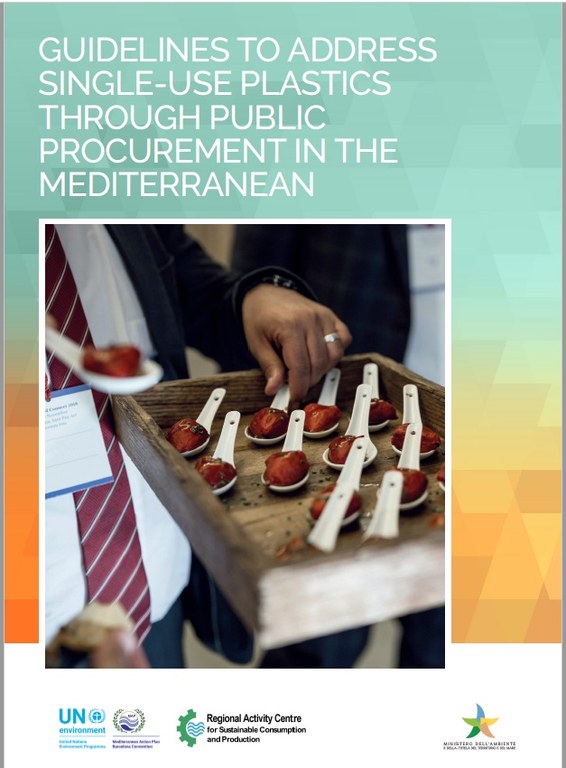
ADDRESSING PLASTIC POLLUTION THROUGH PUBLIC PROCUREMENT. NEW GUIDELINES PRODUCED BY SCP/RAC AVAILABLE IN FRENCH
The guidelines to address single-use plastics through public procurement in the Mediterranean are now available in French, in addition to the English, Albanian and Bosnian-Montenegrin versions.
Public procurement is identified as a key action to ...
The guidelines to address single-use plastics through public procurement in the Mediterranean are now available in French, in addition to the English, Albanian and Bosnian-Montenegrin versions.
Public procurement is identified as a key action to address plastic marine litter by the Barcelona Convention.
The guidelines target policy-makers in the Contracting Parties to the Barcelona Convention and provide them with a step-by-step approach for developing the appropriate framework to address the reduction of single-use plastics through procurement in the public sector.
By implementing these guidelines, public administrations across the Mediterranean can boost circular economy in the region and abate plastic pollution. This publication has been commissioned by SCP/RAC to Ecoinstitut, as part of the portfolio of activities to improve the policy framework and engage with the food & beverage industry in Albania, Bosnia & Herzegovina and Montenegro, through the Cooperation Agreement between UN Environment/MAP and the Italian Ministry of Environment and Land and Sea Protection.
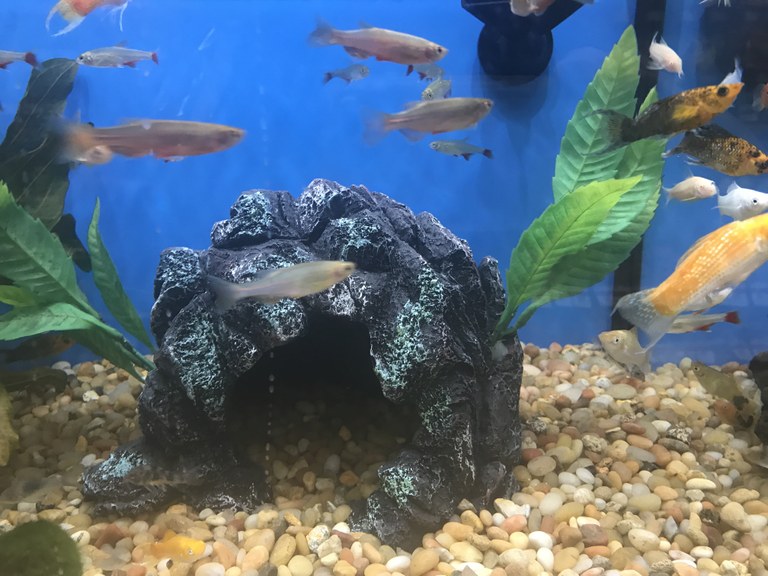
NATIONAL PRIORITIES DEFINED FOR A NEW BIODIVERSITY CONSERVATION STRATEGY IN THE MEDITERRANEAN SEA
The Mediterranean Sea is a biodiversity hotspot. Its conservation requires coordinated action on a regional scale, which at the same time responds to the specificities of each country.
Since Februrary 2020, the SPA/RAC is preparing the Post-2020 ...
The Mediterranean Sea is a biodiversity hotspot. Its conservation requires coordinated action on a regional scale, which at the same time responds to the specificities of each country.
Since Februrary 2020, the SPA/RAC is preparing the Post-2020 Strategic Action Programme for the Conservation of Biodiversity and Sustainable Management of Natural Resources in the Mediterranean Region (Post-2020 SAPBIO).
During this period, SPA/RAC elaborated a guidance document on the elaboration process of the Post-2020 SAPBIO, in consultation with the Advisory Committee.
SPA/RAC has also launched the SAPBIO elaboration process at national level through assisting the preparation of national reports by all Parties on current status and challenges of Mediterranean biodiversity and living resources at national level. They are being followed by the organisation of national online workshops from July to October, to identify the priorities and orientations of each Mediterranean country in terms of marine and coastal biodiversity conservation.
National online workshops organized within the SAPBIO elaboration process
The consultations, leaded by the country National Correspondents, involved national stakeholders (government officials, scientists, NGOs representatives and other resource persons) from different fields of expertise as well as their SPA/RAC National Focal Point.
This process of national consultations is almost completed at the moment, and will result in the publication of national reports including in particular:
- the state of marine and coastal biodiversity, with its current impacts and their drivers
- the conclusions and related priority actions
- the national needs in terms of capacity building, data access/sharing, cooperation and financial resource mobilisation.
In a next stage, sub-regional analyses and consultations will be conducted to foster complementarity and harmonisation between the national priority actions, notably those with transboundary nature such as biological invasions, transboundary species populations, climate change, representativity and connectivity of Marine Protected Areas (MPAs).
Steps for the elaboration of the Post-2020 SAPBIO
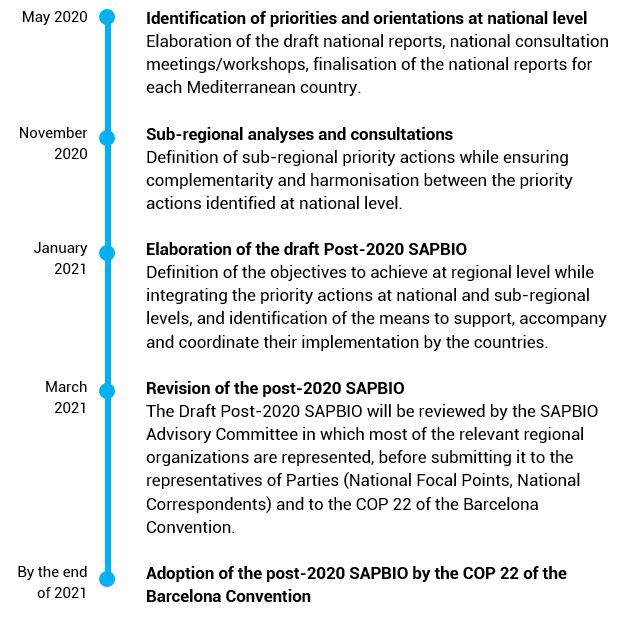
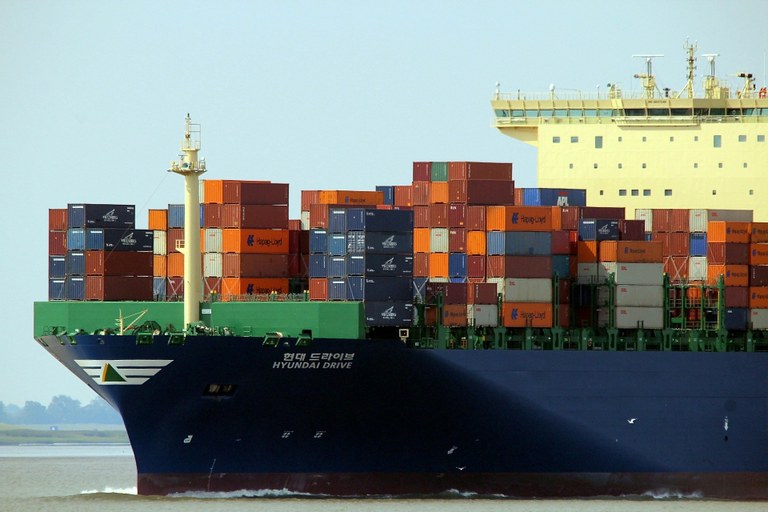
MEDEXPOL
The online Workshop to enhance regional cooperation in responding to marine oil and HNS pollution in the Mediterranean (MEDEXPOL 2020) proposed a set of recommendations to progress on the set-up of a common emergency communication and reporting ...
The online Workshop to enhance regional cooperation in responding to marine oil and HNS pollution in the Mediterranean (MEDEXPOL 2020) proposed a set of recommendations to progress on the set-up of a common emergency communication and reporting systems, the use of a harmonised regional approach to assess preparedness for oil spill, the finalisation of a highly expected multi-regional chemical spill response manual and the creation of synergies between sub-regional agreements in the Mediterranean. The online workshop was organised by REMPEC in close co-operation with the Secretariat General de la Mer (SGMer, France), in the framework of the Western Mediterranean Region Marine Oil and HNS Pollution Cooperation (West MOPoCo) project co-financed by the European Union Civil Protection.
MEDEXPOL 2020 gathered more than 75 participants from 14 countries from the Mediterranean region and 7 countries from the North Sea, the Baltic and Canada, and other partners
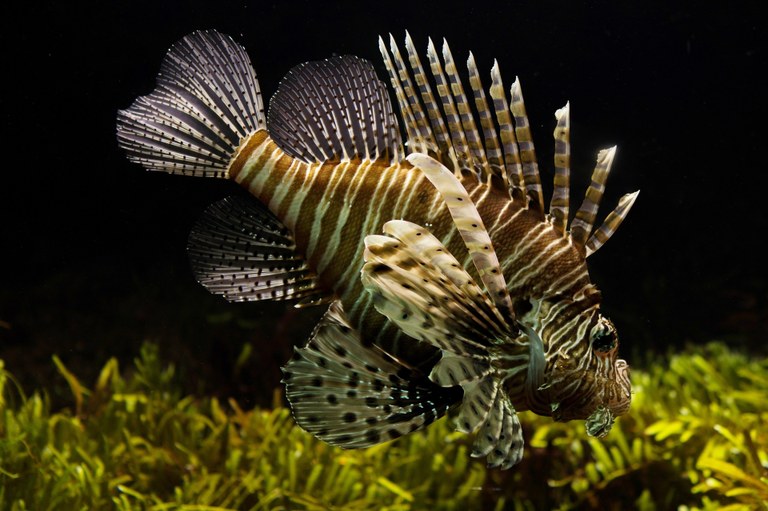
ADDRESSING BALLAST WATER MANAGEMENT AND INVASIVE SPECIES IN THE MEDITERRANEAN REGION
A virtual webinar was organised by REMPEC on 23rd September, the aim of which was to raise awareness, enhance knowledge and share best practices on the implementation of the International Convention for the Control and Management of Ships’ Ballast ...
A virtual webinar was organised by REMPEC on 23rd September, the aim of which was to raise awareness, enhance knowledge and share best practices on the implementation of the International Convention for the Control and Management of Ships’ Ballast Water and Sediments (BWM Convention) in the Mediterranean region as well as to present the latest developments regarding the proposed update of the Mediterranean BWM strategy. The Webinar was attended by 69 participants from 16 Contracting Parties to the Barcelona Convention as well as the IMO, HELCOM, SPA/RAC and representatives from the Odyssea Project. Knowledge was shared on the implementation aspects of and exemptions under the BWM Convention, the Mediterranean BWM strategy and regional cooperation as well as the review of the guidance factsheet related to the common indicator on non-indigenous species within the framework of the Integrated Monitoring and Assessment Programme and related assessment criteria for the Mediterranean Sea and Coast (IMAP).
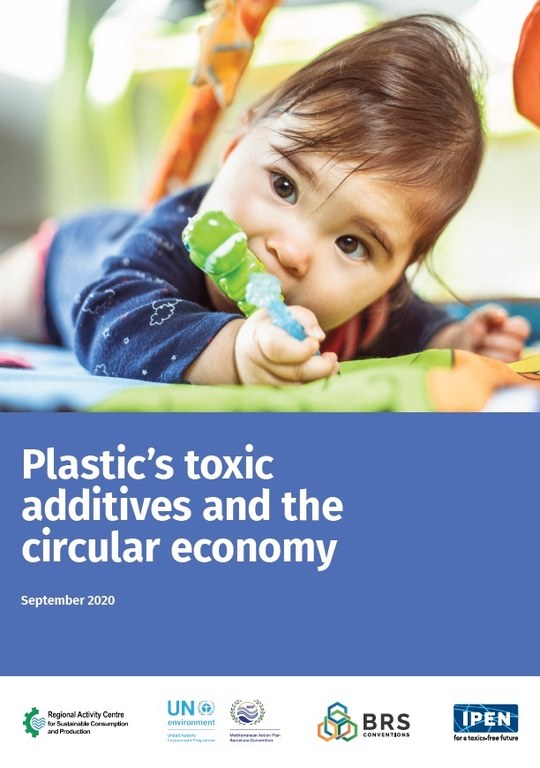
TOXIC ADDITIVES IN PLASTICS: HIDDEN HAZARDS LINKED TO COMMON PLASTIC PRODUCTS
Toxic chemicals of concern that are widespread in common plastic products can hinder the momentum for a circular economy. A new report, coordinated by SCP/RAC, serving both the Stockholm Convention and the Barcelona Convention, has been produced in ...
Toxic chemicals of concern that are widespread in common plastic products can hinder the momentum for a circular economy. A new report, coordinated by SCP/RAC, serving both the Stockholm Convention and the Barcelona Convention, has been produced in collaboration with the International Pollutants Elimination Network (IPEN) in order to shine a light on extensive evidence of toxic chemical components in plastics that can harm human and environmental health and impede a safe circular economy.
The report covers the presence and impact of the hazardous chemicals of concern in all stages of plastic product use-cycle from production and use, to recycling and landfill, incineration, waste to energy, and land and marine accumulation, and addresses their associated impacts on human, marine biota, and environmental health.
Human health consequences of endocrine disrupting chemicals commonly used in plastics include thyroid function disruption, reproductive impacts, obesity, immune system, increased damage, increased cancer risk and impacts on brain and neurological development.
Toxic additives also affect marine life which is particularly worrying in the Mediterranean Region, considered a biodiversity hotspot.
"The COVID-19 pandemic has illustrated the links between environmental health and the wellbeing of human societies. Now is the time to act on science to reduce plastics' toxic chemical additives and the pollution in all its forms and to seek sustainable ways in which we can live in harmony with nature. Taming the leviathan of plastic litter, which stifles marine life and releases highly hazardous substances in the environment, must become a priority,” Gaetano Leone, Coordinator of UNEP/MAP—Barcelona Convention Secretariat said. There are many steps that can be taken to recover in a smart way from COVID-19. Tackling the plastic pandemic is a giant step towards a green renaissance in Mare Nostrum, Mr. Leone observed.
The publication is available in English, French, Spanish and Arabic.
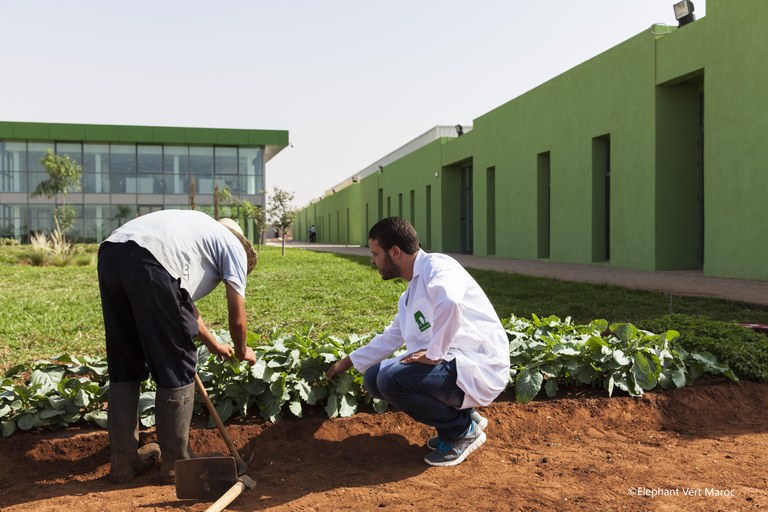
THE GREEN BUSINESS MODEL METHODOLOGY DEVELOPED BY SCP/RAC INSPIRES A NEW COURSE ON GREEN ENTERPRENEURSHIP
SCP/RAC has joined effort with The United Nations Development Programme (UNDP), Convention on Biological Diversity, EcoEnterprises Fund, FaithInvest, Fordham University’s Gabelli School of Business, Lehigh University, SEED, the GEF Small Grants ...
SCP/RAC has joined effort with The United Nations Development Programme (UNDP), Convention on Biological Diversity, EcoEnterprises Fund, FaithInvest, Fordham University’s Gabelli School of Business, Lehigh University, SEED, the GEF Small Grants Programme to offer the Massive Online Open Course (MOOC) on Green Entrepreneurship, a 6 six-week course drawn on the Green Business Model Development methodology created by SCP/RAC under the EU-funded SwitchMed programme.
The MOOC supports entrepreneurs through their green entrepreneur journey, from defining their sustainable business idea to the marketing of products and services, and the evaluation of their social and environmental impacts.
This course will offer a step-by-step framework for transforming a green business idea into a viable business plan. It will provide the tools needed to generate, test, and refine an idea for a green business, together with successful examples of green entrepreneurs’ paths from business ideas to value-generating, market-fit solutions.
The course runs from 2 November 2020 to 11 December 2020 and is open to everyone.
More information.
Trailer on Youtube.

CAMP BOSNIA AND HERZEGOVINA
On 29 June 2020 the Agreement relative to the CAMP project for Bosnia and Herzegovina was signed by Mr. Živko Matuško, Mayor of the town of Neum, for the Government of Bosnia and Herzegovina, and Ms. Željka Škaričić, PAP/RAC Director, for the ...
On 29 June 2020 the Agreement relative to the CAMP project for Bosnia and Herzegovina was signed by Mr. Živko Matuško, Mayor of the town of Neum, for the Government of Bosnia and Herzegovina, and Ms. Željka Škaričić, PAP/RAC Director, for the Secretariat of the Barcelona Convention (UNEP/MAP).
This concluded a long preparatory phase for this project and it is now ready for implementation. It will focus on priority issues for their relatively short coastline and will include the establishment of an institutional mechanism for ICZM, monitoring of marine and coastal environment, inventory of marine habitats and protected areas, national contingency plan, sustainable tourism, data management and adaptation to climate change. A series of capacity-building and awareness-raising activities will support the project. Most of UNEP/MAP components will be involved with their technical capacities. The project is envisaged to be completed by July 2022.
Soon after the Agreement was signed the CAMP entered its implementation phase. The inception meeting of its Steering Committee was organised on-line on 15 October 2020. The Steering Committee is composed of seven representatives from different administrative levels and institutions of Bosnia and Herzegovina and PAP/RAC.
A project logo has been designed by INFO/RAC with the objectives to give identity to this CAMP project as well as to increase its visibility among stakeholders and general public.
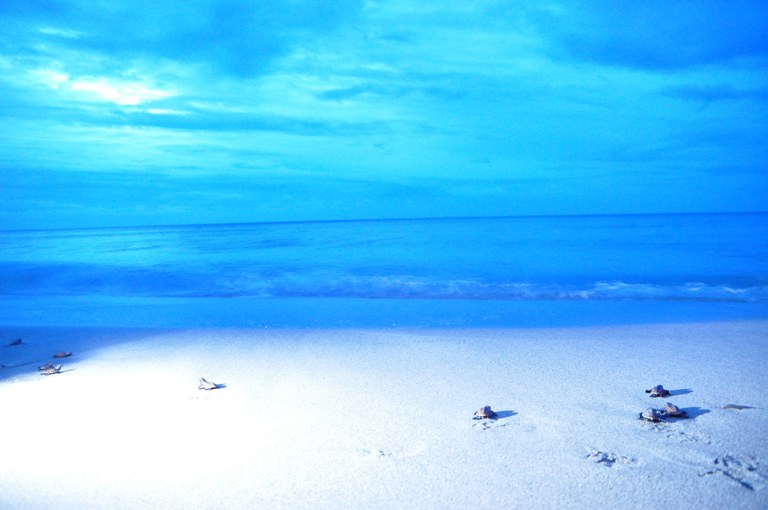
PARTNERSHIP AND SYNERGIES TOWARDS BETTER CONSERVATION OF MARINE BIODIVERSITY IS CONTINUING WITH THE FINANCIAL SUPPORT OF MAVA
With the support of the MAVA Foundation, the partnership and cooperation between national and international organisations continue in order to carry out concrete actions for the long-term conservation of marine biodiversity in the Mediterranean. ...
With the support of the MAVA Foundation, the partnership and cooperation between national and international organisations continue in order to carry out concrete actions for the long-term conservation of marine biodiversity in the Mediterranean. Here is an overview of the most recent projects in which SPA/RAC is involved. Read more
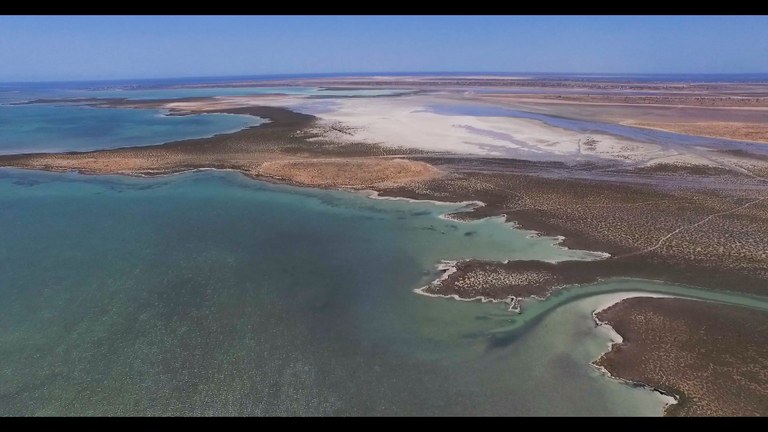
KICK-OFF MEETING OF THE EU FUNDED IMAP-MPA PROJECT IN TUNISIA
The European Union funded IMAP-MPA project coordinated by UNEP/MAP-Barcelona Convention Secretariat and executed by MedPOL and SPA/RAC aims at consolidating and supporting the Ecosystem Approach (EcAp) process for Marine Protected Areas (MPA) ...
The European Union funded IMAP-MPA project coordinated by UNEP/MAP-Barcelona Convention Secretariat and executed by MedPOL and SPA/RAC aims at consolidating and supporting the Ecosystem Approach (EcAp) process for Marine Protected Areas (MPA) management and sustainable development in the Southern Mediterranean countries.
The IMAP-MPA project activities went underway in Tunisia in October 2020 with a first online meeting, to discuss the national integrated monitoring programme of the marine environment and the implementation of the management plan of the north-eastern islets of Kerkennah Archipelago, a future MPA.
The meeting was organized by SPA/RAC on October 7th, 2020, in close collaboration with the Ministry of Local Affairs and Environment of Tunisia, with the participation of representatives of national authorities and institutions, as well as civil society organizations.
The meeting selected the sites of Kerkennah (north-eastern islets) and Kuriat, both future MPAs and already benefiting from management measures, and the Gulf of Gabes, which is an area under high pressure, to launch the monitoring activities. The comparison of monitoring results will be used to better understand the impacts of human activities on the marine environment and to set up or adapt management measures as needed. This approach is in line with the Integrated Monitoring and Assessment Programme (IMAP) of the Mediterranean Sea and Coast (Decision IG.22/7) adopted in 2016, by the 19th Conference of Parties to the Barcelona Convention.
Discussions also focused on the means to be deployed to coordinate and sustain all activities related to the monitoring of the marine environment in Tunisia within the framework of the IMAP regional process. Thus, it was decided to set up, under the aegis of the Ministry of Local Affairs and Environment, a permanent national steering committee for the IMAP programme in Tunisia, that will include three working groups on: Pollution and Marine Litter, Biodiversity and Fisheries, Coast and Hydrography. The national IMAP committee should involve all governmental departments and institutions concerned by these topics, as well as NGOs and resource persons.
The committee will, among other things, ensure a synergistic and coordinated implementation of the activities of the IMAP-MPA project and those of the upcoming EcAp MED III project "The effective implementation of the ecosystem approach based on integrated monitoring and assessment of the Mediterranean Sea and its coasts in synergy with the EU Marine Strategy Framework Directive (MSFD)", of which Tunisia is also beneficiary.
Finally, it was recommended to create a national platform for data banking, exchange and communication and to further invest in capacity building of the involved stakeholders.
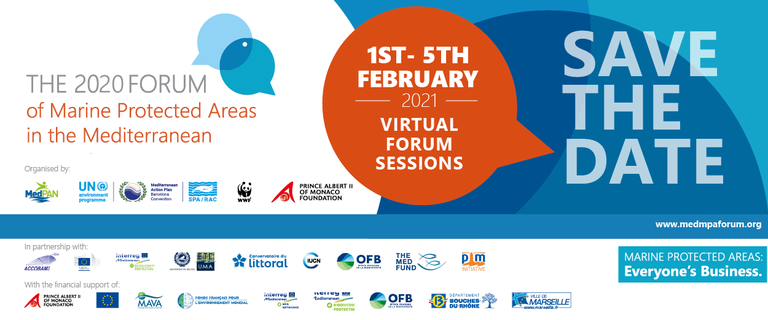
LAUNCHING OF THE 2020 MEDITERRANEAN MPA FORUM PROCESS
The Specially Protected Areas Regional Activity Centre (SPA/RAC) of the UNEP-Mediterranean Action Plan, the Network of Marine Protected Areas Managers in the Mediterranean (MedPAN), the World Wide Fund for Nature (WWF) through its Mediterranean ...
The Specially Protected Areas Regional Activity Centre (SPA/RAC) of the UNEP-Mediterranean Action Plan, the Network of Marine Protected Areas Managers in the Mediterranean (MedPAN), the World Wide Fund for Nature (WWF) through its Mediterranean Programme, the Prince Albert II of Monaco Foundation, and their partners, have launched the process related to the third edition of the Forum of Marine Protected Areas (MPAs) in the Mediterranean.
This third edition aims mainly to deliver an operational and concrete “Post-2020 Roadmap for Mediterranean MPAs” to achieve MPA targets in line with international commitments, and especially the Post-2020 Global Biodiversity Framework, that will be agreed upon in 2021 by the CBD COP 15.
Worth mentioning that the SPA/RAC is currently in the process of preparing the “Post-2020 Strategic Action Programme for the Conservation of Biodiversity and Sustainable Management of Natural Resources in the Mediterranean Region” (Post-2020 SAP BIO), and will be developing the “Post-2020 Regional Strategy on marine protected areas and other effective area-based conservation measures”, both under the framework of the Barcelona Convention’s SPA/BD Protocol, to be submitted to the forthcoming Barcelona Convention COP 22 in late-2021. The Post-2020 MPA Roadmap is, therefore, of crucial importance to the Barcelona Convention and SPA/RAC. Indeed, this roadmap, being prepared based on a wide participative process, including equally all MPA stakeholders in the region, would certainly feed the Barcelona Convention’s post-2020 strategies.

The 2020 MPA Forum process will be carried out in two major steps.
The first step is an online consultation process, consisting of a series of working groups made of a panel of invited stakeholders, that will be held in November 2020. This step will allow the preparation of a first draft of the Post-2020 MPA Roadmap. Working group exchanges will be fed by the results of a short questionnaire aimed at identifying the main limiting factors that Mediterranean MPAs face. This survey has been disseminated in October 2020 among the wide MPA community. The preliminary draft of the roadmap will be then discussed and pre-finalized during Virtual Forum Sessions scheduled from the 1st to the 5th of February 2021 (save the date!).
The second and final step will be a face-to-face event in 2021 or 2022 to finalise the Post-2020 MPA Roadmap, following the outcomes of global and regional strategic processes.
More information will be shared soon on the MPA Forum website: www.medmpaforum.org
Forum partners:
ACCOBAMS, Conservatoire du littoral, European Commission (DG Environment), European Topic Centre/University of Malaga (ETC-UMA) /Mediterranean Biodiversity Protection Community (MBPC), IUCN Mediterranean Cooperation Centre (IUCN-Med), French Biodiversity Agency (OFB), The MedFund, Mediterranean Small Islands Initiative (PIM)
With the financial support of:
Prince Albert II of Monaco Foundation, European Commission (through the IMAP-MPA Project), MAVA Foundation, French Facility for Global Environment (FFEM), INTERREG-Med MPA NETWORKS Project, INTERREG- Med Mediterranean Biodiversity Protection Community (MBPC) Project, French Biodiversity Agency (OFB), City of Marseille, Bouches-du-Rhône Department
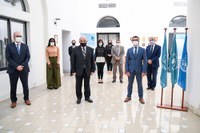
VISIT OF THE PRESIDENT OF MALTA
On October 21st, the President of Malta, George Vella, paid a cordial visit to REMPEC and met its staff. Following a presentation on the Centre’s priorities and achievements, the President commended REMPEC for its sterling work and affirmed the ...
On October 21st, the President of Malta, George Vella, paid a cordial visit to REMPEC and met its staff. Following a presentation on the Centre’s priorities and achievements, the President commended REMPEC for its sterling work and affirmed the importance of public awareness on marine pollution and sea protection.
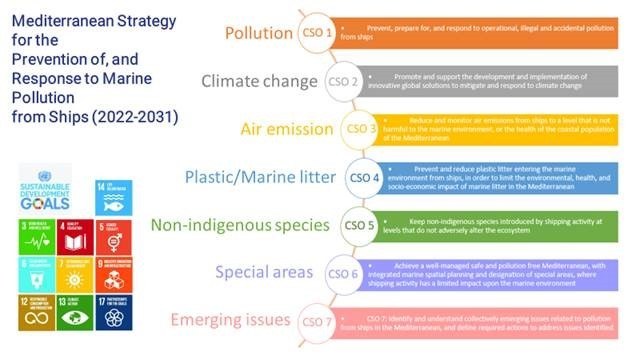
LAUNCH OF THE CONSULTATION PROCESS FOR THE MED STRATEGY (2022-2031)
REMPEC launched a consultation process for the preparation of a Mediterranean Strategy for the Prevention of, and Response to Marine Pollution from Ships for the next ten years
(2022-2031) to address pressures from maritime activities exerted on ...
REMPEC launched a consultation process for the preparation of a Mediterranean Strategy for the Prevention of, and Response to Marine Pollution from Ships for the next ten years
(2022-2031) to address pressures from maritime activities exerted on marine ecosystems in the Mediterranean region.
The consultation process involves national competent authorities from the 22 Contracting Parties to the Barcelona Convention, relevant regional and international institutions and stakeholders addressing challenges and offering expertise, resources, and funding to progress in the improvement of the prevention of and response to marine pollution from ships in the Mediterranean region.
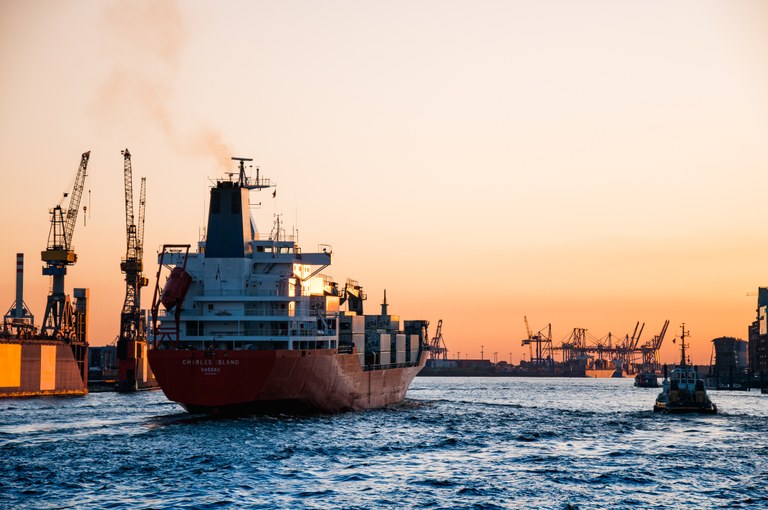
NEW INSIGHTS INTO PRESSURE EXERTED ON MARINE ECOSYSTEMS IN THE MED
In collaboration with Plan Bleu, MED POL and SPA/RAC, REMPEC prepared a Study on trends and outlook of marine pollution from ships and activities and of maritime traffic and offshore activities in the Mediterranean. The study compiles the best ...
In collaboration with Plan Bleu, MED POL and SPA/RAC, REMPEC prepared a Study on trends and outlook of marine pollution from ships and activities and of maritime traffic and offshore activities in the Mediterranean. The study compiles the best available knowledge on four aspects: pollution from oil and chemicals, marine litter, air pollution, non-indigenous species and underwater noise. A technical report on maritime traffic outlook for the next five, ten and thirty years (2025, 2030, 2050) has been integrated in a revised version of the Study, which is expected to be published in the second half of 2021.
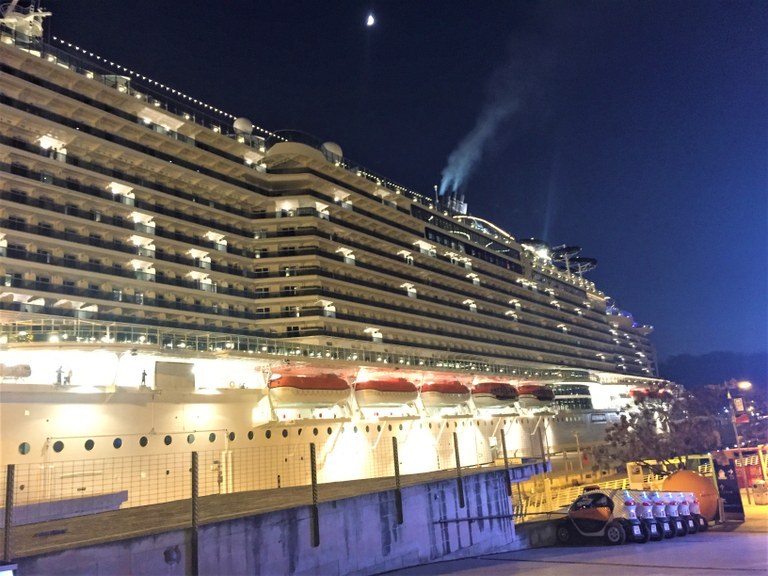
Mediterranean SOx ECA - The road map for a proposal
The extended mandate of the SOx ECA Technical Committee of Experts (until 30 April 2021), which was granted at COP 21, has enabled this regional cooperative mechanism to oversee the on-going knowledge gathering and further studies for the ...
The extended mandate of the SOx ECA Technical Committee of Experts (until 30 April 2021), which was granted at COP 21, has enabled this regional cooperative mechanism to oversee the on-going knowledge gathering and further studies for the implementation of the road map of the possible designation of the Mediterranean Sea, as a whole, as an Emission Control Area for Sulphur Oxides (Med SOx ECA). According to the road map, a series of knowledge gathering and further studies should be carried out systematically and the first outcomes were reviewed by the technical committee. Feedback and comments provided by experts from 17 Contracting Parties to the Barcelona Convention are under consideration at the moment and will be addressed when finalising the deliverables resulting from the knowledge gathering and further studies.
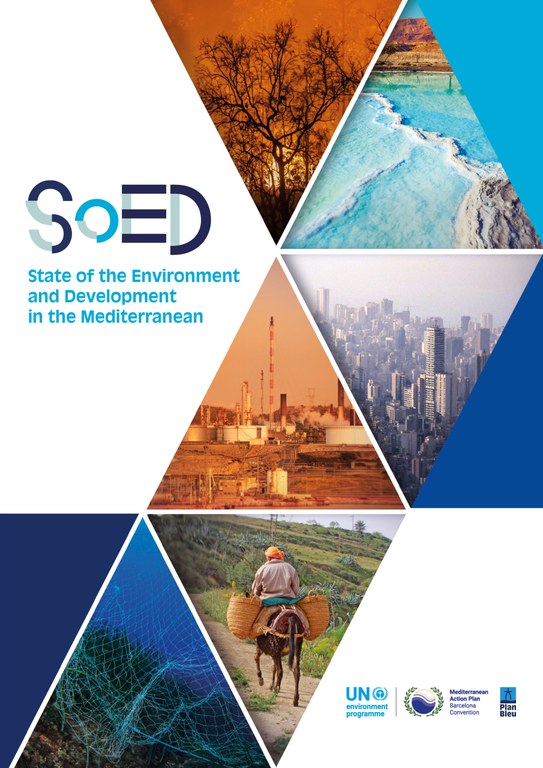
THE SOED 2020 IN BRIEF
The report on the State of the Environment and Development (SoED) released on 21 October 2020 warns that the Mediterranean basin is facing environmental and developmental challenges of an unprecedented scale. Against a backdrop of rising ...
The report on the State of the Environment and Development (SoED) released on 21 October 2020 warns that the Mediterranean basin is facing environmental and developmental challenges of an unprecedented scale. Against a backdrop of rising inequalities, the alarming pace of biodiversity loss, the rising impacts of climate change and the unrelenting pressure on natural resources, including pollution, are pushing the region towards dangerous tipping points. Unless urgent and resolute action is taken to halt current trends, irreversible environmental degradation could have dire consequences for human health and livelihoods.
SoED, which was last published a decade ago, is produced by Plan Bleu, a Regional Activity Centre of the UN Environment Programme Mediterranean Action Plan (UNEP/MAP). It is aimed at decision-makers and all actors in the fields of environment and development in the Mediterranean region. It is the most comprehensive and rigorous assessment of its kind and its production entailed a two-year effort of knowledge compilation undertaken by 150 experts mobilized by Plan Bleu from across the region. Representatives of the Contracting Parties to the Barcelona Convention (21 Mediterranean countries and the European Union), for which UNEP serves as Secretariat, took part in the SoED preparation process.
The majors questions which this report addresses are : What is the state, what are the trends and what can be observed in the environment and development in the Mediterranean? What are the causes? What are the responses? What are the achievements and shortcomings? What science-based priorities should be set for the next 10 years?
The report is the result of a collective effort by the Contracting Parties, members of the Mediterranean Commission for Sustainable Development (MCSD), and MAP components and partners who have expertise in relevant fields in the Mediterranean. Its production entailed a two-year effort of knowledge compilation undertaken by 150 experts mobilized from across the region by Plan Bleu. Under the general supervision of the MAP Coordinating Unit, Plan Bleu is responsible for the development process of SoED with the support of all MAP components.
This is the first report of this scope in the Mediterranean. According to the report, the Mediterranean is facing environmental challenges of an unprecedented magnitude. The SoED 2020 accurately points out the risks faced by all countries in terms of climate change, maintenance of biodiversity, sustainable management of resources, control of solid or air pollution (waste, chemicals, particles, etc.), underlines weaknesses in governance that make it challenging to deal
with them, and reveals the needed profound changes for a sustainable development in the Region.
The Mediterranean will not achieve the Sustainable Development Goals by 2030 if no urgent measures are taken to respond to the alarming rate of biodiversity loss, the increasingly marked effects of climate change and the overconsumption of natural resources. However, there are reasons for hope if collective and lasting actions are put in place.
Why this SoED 2020? - Mediterranean Countries and Stakeholders have expressed a need and interest for new information and analysis on environment and development, through recent maps, graphics, data and policies. In the Mediterranean Region, no report of this magnitude had been produced over the past decade. The objective of SoED 2020 is to fill these gaps and increase awareness and understanding of the environmental state and trends in the Mediterranean, their driving forces and impacts, as well as to propose potential responses, while making it easier to measure progress towards sustainable development. The SoED 2020 also provides an up-to-date database to improve the implementation of the MAP 2030 Agenda, the Sustainable Development Goals (SDGs) and the Mediterranean Strategy for Sustainable Development 2016-2025 (MSSD). Another objective of this report is to demonstrate the ability to monitor and analyze the state of the environment, the impact of human activities on the environment and the potential impact of environmental degradation on our well-being and our activities. The SoED 2020 will also be useful for the MED 2050 foresight exercise.
The SoED 2020 is made up of eight thematic chapters and is complemented by two position papers: the Summary for decision makers that provides an overview of the state of the environment and development in the Mediterranean and is intended for a wide audience, and the Key Messages that gathers evidence from various chapters most closely related to marine and coastal environmental issues and highlights the combined interactions and impacts according to the analytical framework of factors-pressures-state-impacts-responses (DPSIR). The key messages develop a broader significance of the results, conveying relevant but non-prescriptive suggestions for policy makers in the context of the Mediterranean Action Plan – The Barcelona Convention System, and identify priority areas for future policy-oriented research. Key messages are consistent with the UN’s 2030 Agenda for Sustainable Development and its SDGs, as well as the SMDD.
The SoED 2020 was presented a first time to the International Press Agencies, on October 21, 2020, and a second time to the French Press Agencies on November 18, 2020, both during a Press Conference organized by Plan Bleu, the Regional Activity Centre of UNEP / MAP.
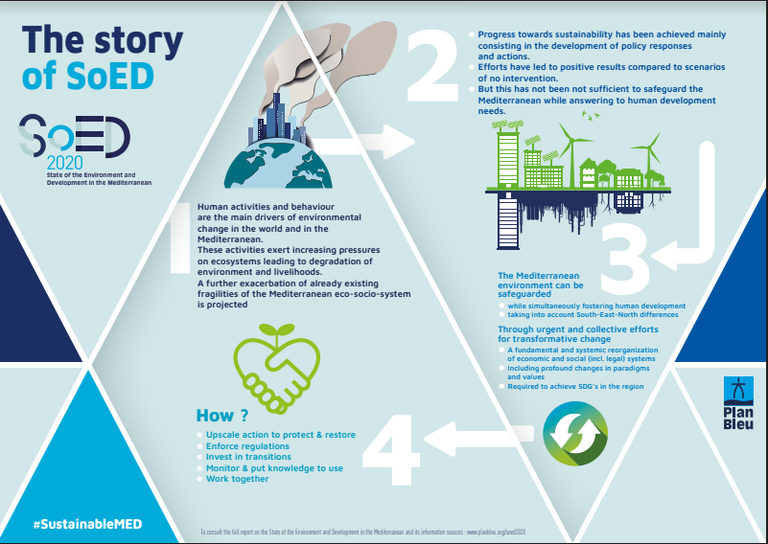
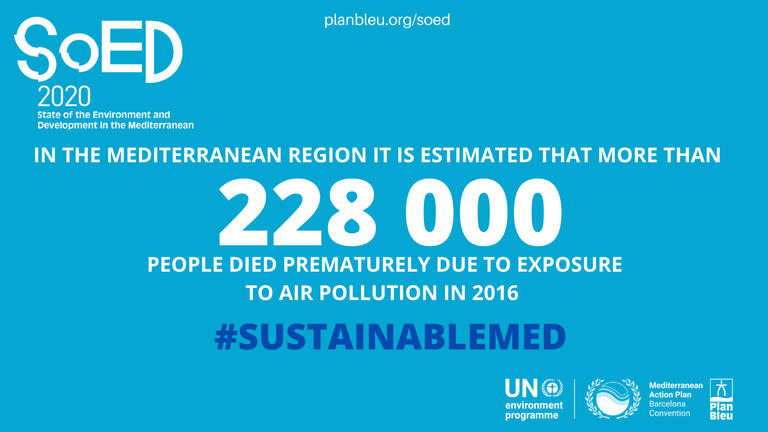
A healthy Mediterranean is possible if the region overcomes challenges
The relationship between human health and natural ecosystems is increasingly attracting the attention of researchers. Human health and well-being are influenced by the goods and services provided by ecosystems, including in the Mediterranean ...
The relationship between human health and natural ecosystems is increasingly attracting the attention of researchers. Human health and well-being are influenced by the goods and services provided by ecosystems, including in the Mediterranean region.
Human activities such as bottom trawling and microbial and chemical contamination threaten Mediterranean marine organisms that provide bioactive substances used to develop new drugs to treat major human diseases, including cancer. Contamination also adversely affects the recreational use of coastal and deep-sea waters. It is therefore necessary to preserve the goods and services provided by Mediterranean marine ecosystems in order to enhance the benefits and minimize the risks to health.
According to the report, 15 per cent of deaths in the Mediterranean are attributable to preventable environmental factors compared to 23% globally; in 2016, more than 228,000 people died prematurely from exposure to air pollution, the main cause of environmental morbidity and mortality in the region.

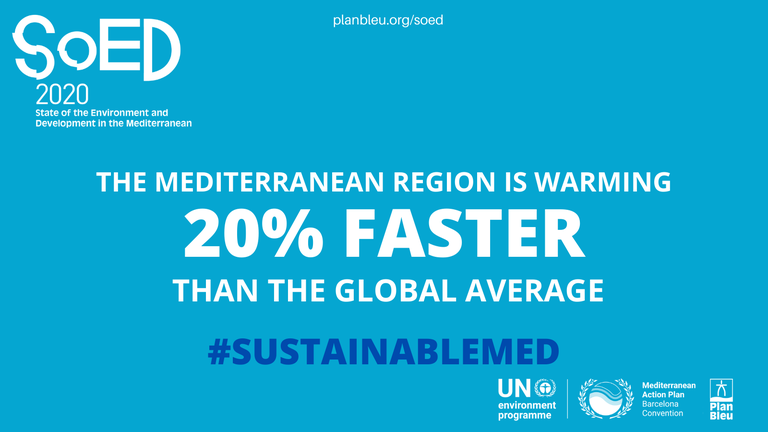
The Mediterranean: A climate change hotspot
The Mediterranean basin is warming 20% faster than the global average, in particular because of the faster warming of ambient air and sea surface in all seasons. While the average air temperature in the world is now about 1.1 ° C above ...
The Mediterranean basin is warming 20% faster than the global average, in particular because of the faster warming of ambient air and sea surface in all seasons. While the average air temperature in the world is now about 1.1 ° C above pre-industrial values, the Mediterranean region is approaching a warming of 1.6 ° C. The IPCC predicts a rise in temperatures of 2 to 3 ° C by 2050, and an increase of 3 to 5 ° C by 2100 in this region.
The report reveals several objectives and action plans to be put in place. For example adapting to climate change in agricultural, urban and coastal areas requiring significant investments; anticipating adaptation, choosing “no regrets” solutions including nature-based solutions, and effectively involving the private sector (including banks and insurance companies) in order to reduce financing needs; improving public access to information and public involvement, as well as raising awareness of sustainable development that are essential to act in an inclusive manner in favor of transitions and to raise the political profile of environmental issues; and also effective policies for a transition to sustainability that require an inclusive and integrated approach bringing about changes in behavior at all levels.
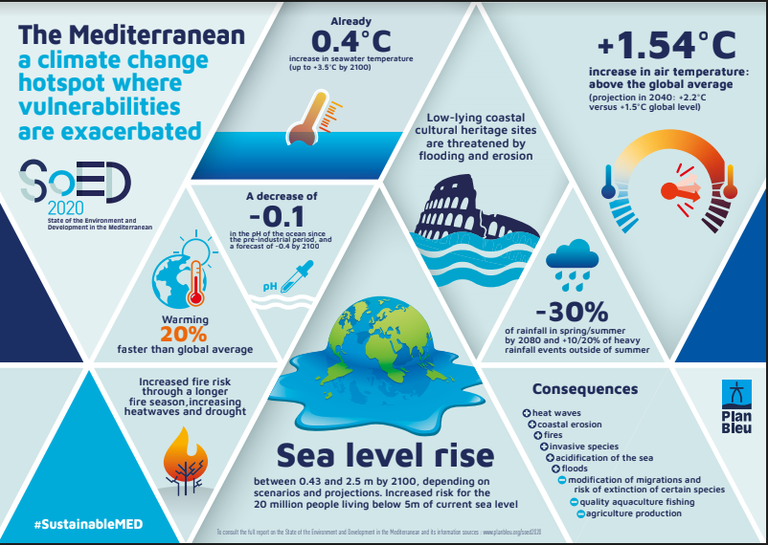
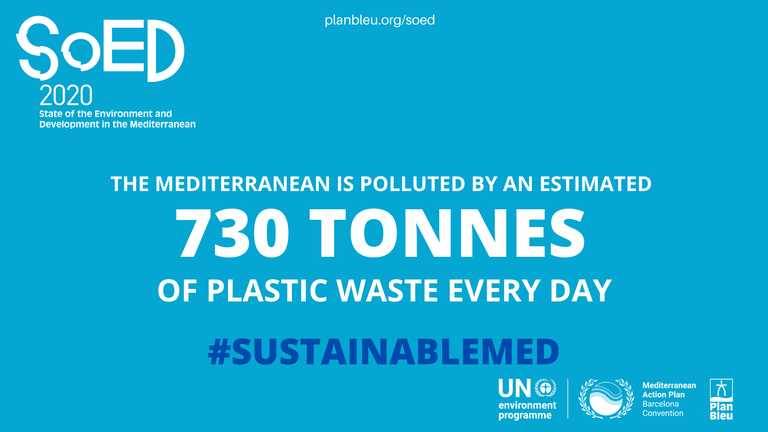
The Mediterranean: A crossroads of several types of pollution
The Mediterranean is one of the most affected regional seas by marine litter due to the increase in the use of plastics, the lack of recycling, unsustainable consumption patterns, inadequate or inefficient waste management, strong pressures from ...
The Mediterranean is one of the most affected regional seas by marine litter due to the increase in the use of plastics, the lack of recycling, unsustainable consumption patterns, inadequate or inefficient waste management, strong pressures from tourism and maritime transport, associated with significant river flows.
Many illegal dumping sites are present along the coast and waste recycling, which is hindered by collection processes that are too often inefficient, generally remains minimal on the southern and eastern shores. Even if marine litter from land-based sources remains predominant, marine litter from maritime sources actively contributes to the problem, representing on average 32% of litter in the European Union, and reaching 50% in some areas of the basin.
In 2016, the Contracting Parties of the Barcelona Convention adopted the Action Plan for Sustainable Consumption and Production (SCP) in the Mediterranean. The Action Plan recognizes the need to change patterns of consumption and production in order to separate human development from degradation of the marine and coastal environment and provides guidelines to foster a transition to patterns of consumption and production sustainable, long term sustainability, circular economy and new paradigms for the use of resources, taking into account climate change and participating in the 2030 Agenda. The action plan is complemented by a roadmap, and further efforts are required for its effective implementation.
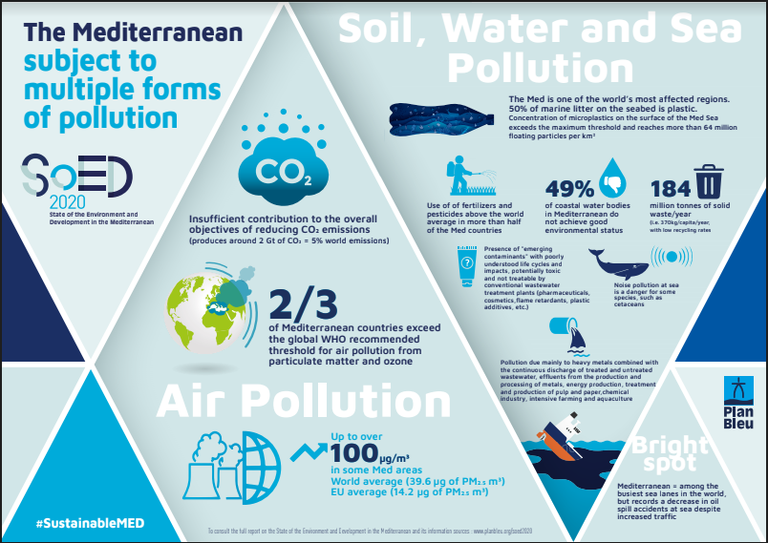
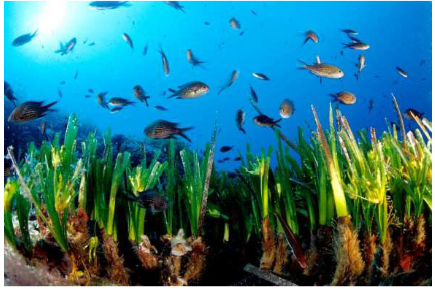
The Mediterranean: A biodiversity hotspot and a global wealth to protect
Fishing practices pose a particular threat to fisheries : 78% of stocks are subject to overfishing,
while 18% of total catches are discarded. As for aquaculture, which is developing significantly,
impacts are not negligible with the use of wild ...
Fishing practices pose a particular threat to fisheries : 78% of stocks are subject to overfishing,
while 18% of total catches are discarded. As for aquaculture, which is developing significantly,
impacts are not negligible with the use of wild species for farmed food fish, the transfer of
native species and the releases of nitrogen and phosphorus. The presence of more than 1,000 non-indigenous species also poses threats to biodiversity
There is an urgent need to radically change production and consumption patterns in the
Mediterranean region in order to make resolute progress towards sustainable and inclusive
development. This transformation makes it possible to focus on concerns related to climate
change, the protection of biodiversity, the circular economy and the transition to a blue /
green economy. This is in line with the United Nations 2030 Development Agenda and its
Sustainable Development Goals, as well as the recent Mediterranean Strategy for Sustainable
Development (MSSD).
